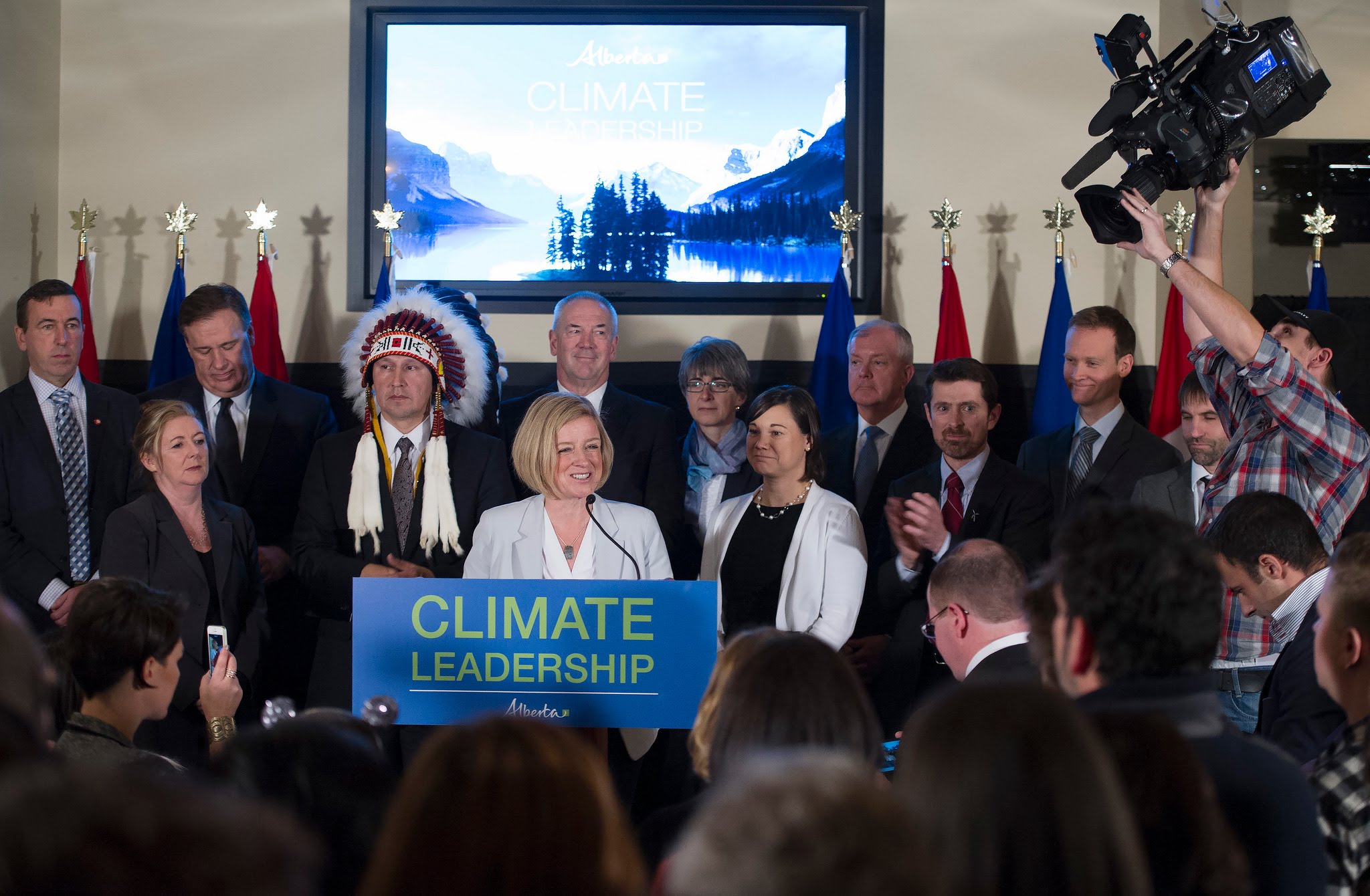Alberta Adopts Carbon Tax
Toronto Globe and Mail: Alberta’s NDP government is imposing new […]
Toronto Globe and Mail: Alberta’s NDP government is imposing new curbs on emissions from the oil sands and establishing an economy-wide carbon tax in a sweeping new plan aimed at showing it is serious about fighting climate change.
The long-awaited strategy, which comes days before world leaders meet in Paris for a major climate summit, also includes a phaseout of coal-fired power generation in the next 15 years, a 10-year plan to nearly halve methane emissions, as well as incentives for renewable energy.
How did B.C. pull off this policy triumph?
Research and advocacy group Clean Energy Canada had a simple but rather brilliant idea: it asked! Last fall, it interviewed 14 key figures, including some of the plan’s political architects (like B.C.’s then-premier and then-finance minister) as well as experts from business and academia who were involved in the process.
CEC has now released a report distilling what it learned from those interviews: “How to Adopt a Winning Carbon Price.” There are 10 key takeaways. I’ll list them all, but I’m only going to dig in on a couple. See the report for more (it’s short and readable):
- A carbon tax and a thriving economy can co-exist.
- You need strong political leadership to get a carbon tax in place. (Public concern about climate disruption helps, too.)
- Keep it simple: Design a policy that’s easy to administer thanks to broad coverage and minimal exemptions.
- Commit from day one to a schedule of price increases, and stick with it.
- Start with a low price.
- Revenue neutrality helps address private-sector concerns and makes the policy more durable.
- On the other hand, revenue neutrality doesn’t get you very far with voters.
- A carbon tax can’t do everything; it needs to be just one component of a full suite of climate policies.
- Prepare for motivated, vocal — and not necessarily fact-based — opposition. You’ll need active, engaged supporters and targeted communications strategies to counter the critics.
- Expect a cleaner environment, an enhanced reputation, and a thriving clean technology sector.
Read the entire story @ClimateCrocks.com
